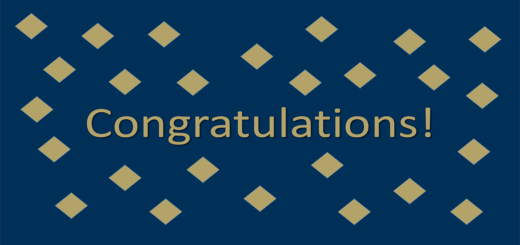Georgia Tech Shines at the USG Teaching & Learning Conference

Classrooms are where ideas begin—but they don’t have to stay there. At this year’s University System of Georgia (USG) Teaching and Learning Conference, Georgia Tech faculty brought their teaching innovations to a broader stage, sparking collaboration, inspiration, and new possibilities across disciplines.
On April 3rd and 4th, Tech faculty gathered with instructors across the USG to share research, experiences, and pedagogical practices. The Teaching and Learning Conference fosters dialogue and scholarship, celebrates teaching and learning excellence, and provides an opportunity for peer institutions to connect over a shared passion for teaching and learning. Georgia Tech had the most presenters accepted out of each institution represented, with presentations on artificial intelligence, course-based undergraduate research experiences, communities of practice, and more.
Meryem Yilmaz Soylu, a research scientist at the Center for 21st Century Universities, presented “Picasso and Einstein in the Classroom: Boosting creativity in advanced STEM education” co-authored by Jeonghyun Lee, Francesco Fedele, and Rachel Grant. The presentation featured the intersection of art, science, and technology, an interdisciplinary approach that Yilmaz Soylu is passionate about sharing, particularly with today’s rise of artificial intelligence. She noted that she hoped her audience walked away seeing creativity not as an “extra,” but as a vital tool for deep learning and innovation in STEM fields.
Yilmaz Soylu also presented her work on an AI oral assessment tool called Socratic Mind, which engages students in real-time Socratic dialogue to promote deeper learning. “I hope attendees saw how AI can be used not just to automate tasks, but to elevate thinking, foster engagement, and support more human-centered learning,” said Yilmaz Soylu.
Emily Weigel co-presented “Building an Effective Faculty Community of Practice: Design principles that support teaching with impact” with five other members of Georgia Tech’s Community of Practice on Transformative Teaching with the UN Sustainable Development Goals. Weigel, who is a Senior Academic Professional in the School of Biological Sciences, hoped faculty from across USG “walked away with clear design principles and actionable steps to build a robust community of practice.”
Several of the presentations focused on the work of CTL’s grant-supported programs. Himani Sharma presented “Finding a CURE for Prescriptive Labs in Materials Science and Engineering Labs,” exploring the results of a Transformative Teaching and Learning Innovation Incubator course-based undergraduate research experience (CURE) grant.
“This project allowed students to move beyond traditional, prescriptive experiments. Instead, they designed and conducted their own investigations to answer open-ended research questions related to materials processing,” said Sharma, a lecturer in the School of Materials Science and Engineering. “I hoped the audience left with the idea that giving students agency in the lab—through designing their own experiments and making decisions—can lead to greater ownership, responsibility, and ultimately, deeper and more meaningful learning.” Sharma also contributed to the interactive workshop on building effective faculty communities of practice.
CTL’s Carol Subiño Sullivan and Laura Carruth presented sessions on two new programs within the Center: the inaugural Leaders in Teaching and Learning cohort and the Provost Teaching & Learning Initiatives. “Leaders in Teaching and Learning: Empowering faculty for transformative education leadership” shared the design of the new faculty leadership program; “Provost Teaching and Learning Initiatives” explored a new grant program supporting faculty-led projects addressing campus challenges.
“We were happy to share our experience designing these innovative programs with colleagues throughout the USG,” said Subiño Sullivan. “Attendees at the sessions asked great questions about our process and were impressed by the way we’ve been able to support faculty through these programs.” Two of the Leaders (including Sharma) and two of the Initiatives grant awardees presented their work at the conference, demonstrating the positive impact both programs have already had at Tech.
View the full list of Georgia Tech presentations below.
| Topic | Georgia Tech Presenters |
|---|---|
| Building an Effective Faculty Community of Practice: Design principles that support teaching with impact | Stacey Doremus, Himani Sharma, Aselia Urmanbetova, Rodrigo Borela Valenta, Rebecca Watts Hull, and Emily Weigel |
| C.A.P.E.R.S. – A Framework that Integrates Pedagogical Practices into AI-Driven Coursework Creation | Lesley Baradel and Vincent Spezzo |
| Chosen, Rather than Required, Participation in Formative Assessments Resulted in Higher STEM Course Grades | Robert Richards and University of Georgia Faculty |
| Designing Generative AI Learning Activities: An interactions approach | Vincent Spezzo |
| Enhancing AI-Powered Oral Assessments: Insights from implementing socratic mind in undergraduate courses | Meryem Yilmaz Soylu |
| Generative AI-based Teaching and Projects in Quantitative Classes: Real-world applications and innovative learning | Tatiana Rudchenko |
| Enhancing Statistical Reasoning and Data Fluency in Undergraduate Biology through Targeted Instruction and Assessment | Emily Weigel |
| Enhancing the Benefits of Problem-Based Learning with Alternative Assessment Approaches | Rebecca Watts Hull |
| Finding a CURE for Prescriptive Labs in Materials Science and Engineering Labs | Himani Sharma and Kate Williams |
| Fostering Community and Connection: Building a sense of belonging through the first-year wellness experience | Sasha McBurse and Christie Stewart |
| Leveraging ChatGPT for Personalized Learning and Well-being: Key innovations and challenges in higher education pedagogy | Saba Colakoglu, Tatiana Rudchenko, and Vincent Spezzo |
| Incorporating Collaborative Learning into a Course to Improve Learning Outcomes | Kevin Haas |
| Leveraging Large Language Models for Scalable Assessment Creation in Higher Education | Brennan Fullmer, Aiden Lee, Greg Mayer, Sidharth Pasula, Aamod Varma |
| Nurturing Your Well-Being: A self care journey | Colleen Riggle |
| Picasso And Einstein In The Classroom: Boosting creativity in advanced STEM education | Meryem Yilmaz Soylu |
| Provost Teaching and Learning Initiative Grants Generate Innovative Solutions for Institutional Teaching and Learning Challenges | Sarah Kegley, David Lawrence, Carol Subiño Sullivan, Vincent Spezzo, Rebecca Watts Hull, Kate Williams |
| Leaders in Teaching and Learning: Empowering Faculty for Transformative Education Leadership | Laura Carruth, Karen Bunch Franklin, Carol Subiño Sullivan, Rebecca Watts Hull, and Kate Williams |




